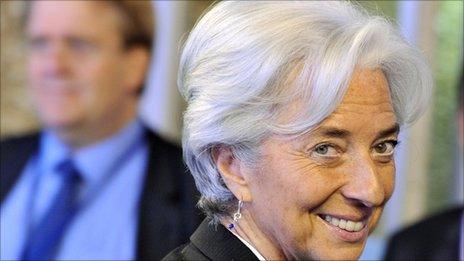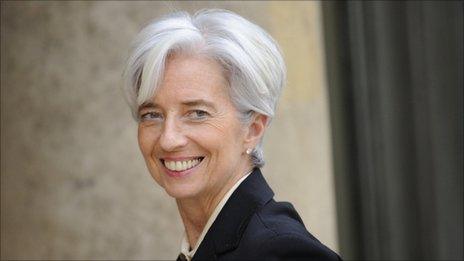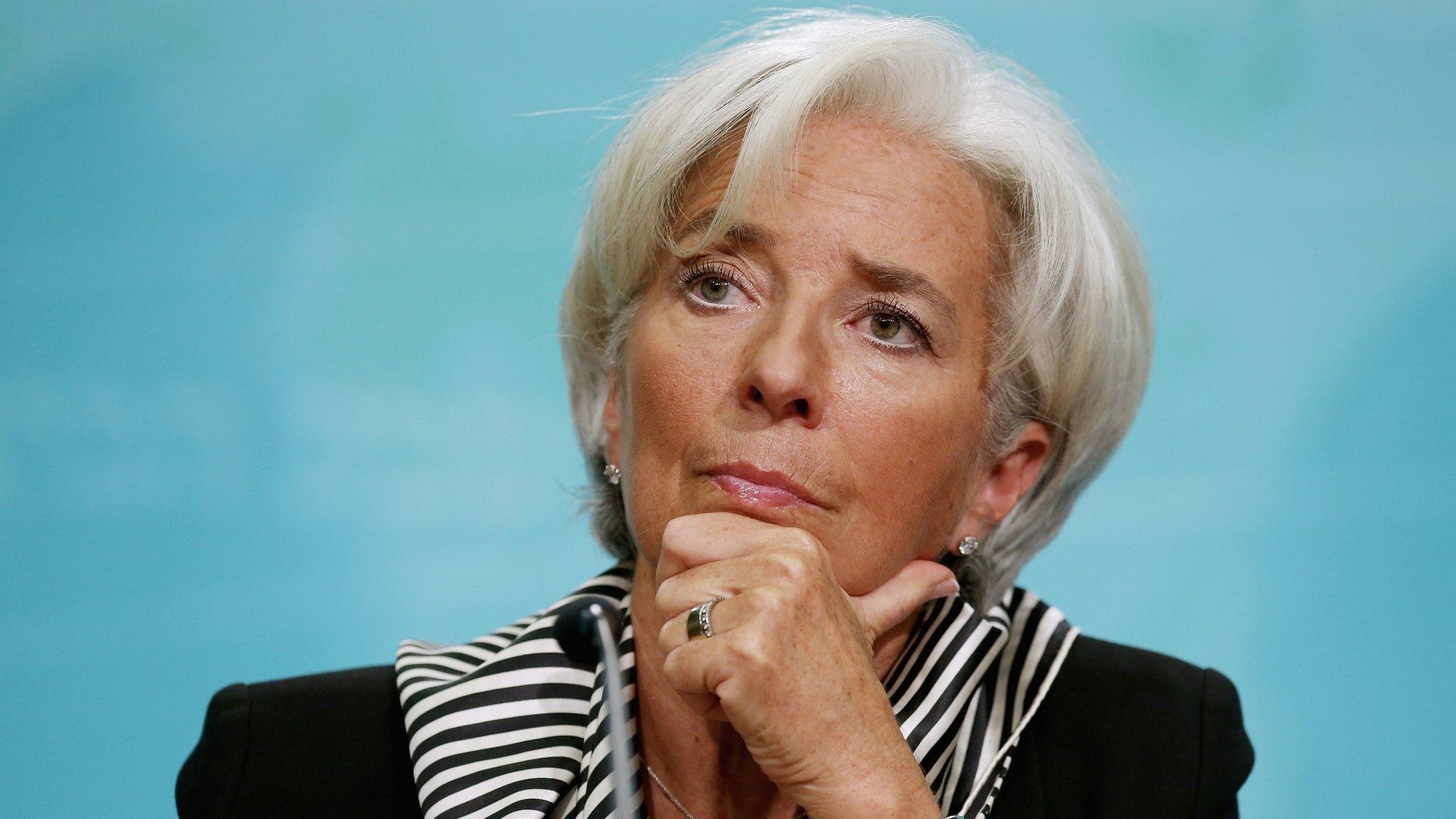Christine Lagarde: IMF must focus on credibility
- Published
Christine Lagarde: ''I don't feel specifically French or European, I feel very much a member of the whole community''
Christine Lagarde, the new head of the International Monetary Fund (IMF), says she wants the fund to be more connected, credible and comprehensive.
She was speaking at her first press conference since taking over the IMF.
Later she told the BBC a solution for eurozone debt had "to be comprehensive, cohesive and not ad-hoc, as sometimes has been the case in the past".
She also said she was confident about Portugal because there was cross-party support for its austerity measures.
And she defended her appointment as the latest in a long line of French IMF heads, saying, "I don't feel specifically French or European, I feel very much a member of the whole community."
BBC economics editor Stephanie Flanders said that it was not just the support of European governments that won Ms Lagarde the job and that she had also been supported by China and Brazil.
Ms Lagarde said she wanted to improve diversity at the IMF.
She pledged to push ahead with reforms to give emerging markets greater sway at the international lender.
"The world is going to continue to change," she said.
"We have these tectonic plates that are moving at the moment, and that needs to be reflected in the composition of governance and employment at the fund."
'No special treatment'
"First of all, let's focus on those connections and those connecting-points between economies, within economies, and make sure that our services and our advice are actually properly including that particular aspect," she told reporters.
"For the fund to be credible, its analysis, its work, needs to be candid, needs to be credible, needs to be even-handed. There is no one category of country that deserves special treatment and another one that will receive harsh treatment."
Turning to the third "C", comprehensiveness, she said: "We cannot only analyse the economy by looking at some of the traditional standard criteria... the comprehensiveness of our approach must be enhanced."
Ms Lagarde also said she would be completing a training programme on ethics.
Her predecessor Dominique Strauss-Kahn quit to fight sexual assault charges in the US.
He denies assaulting a hotel maid in New York on 14 May and was recently freed from house arrest in the city.
The IMF is usually led by a European, while the World Bank is led by an American, but with the rapid growth of countries such as India and China, it has been suggested that people from elsewhere in the world might be considered for the jobs.
In the end, Ms Lagarde was chosen ahead of Mexico's Agustin Carstens.
She takes over at a tricky time for the IMF, with a second bail-out for Greece being discussed and the ratings agency Moody's saying there is a growing risk that Portugal will also need a second bail-out.
- Published28 June 2011

- Published28 June 2011

- Published19 December 2016
